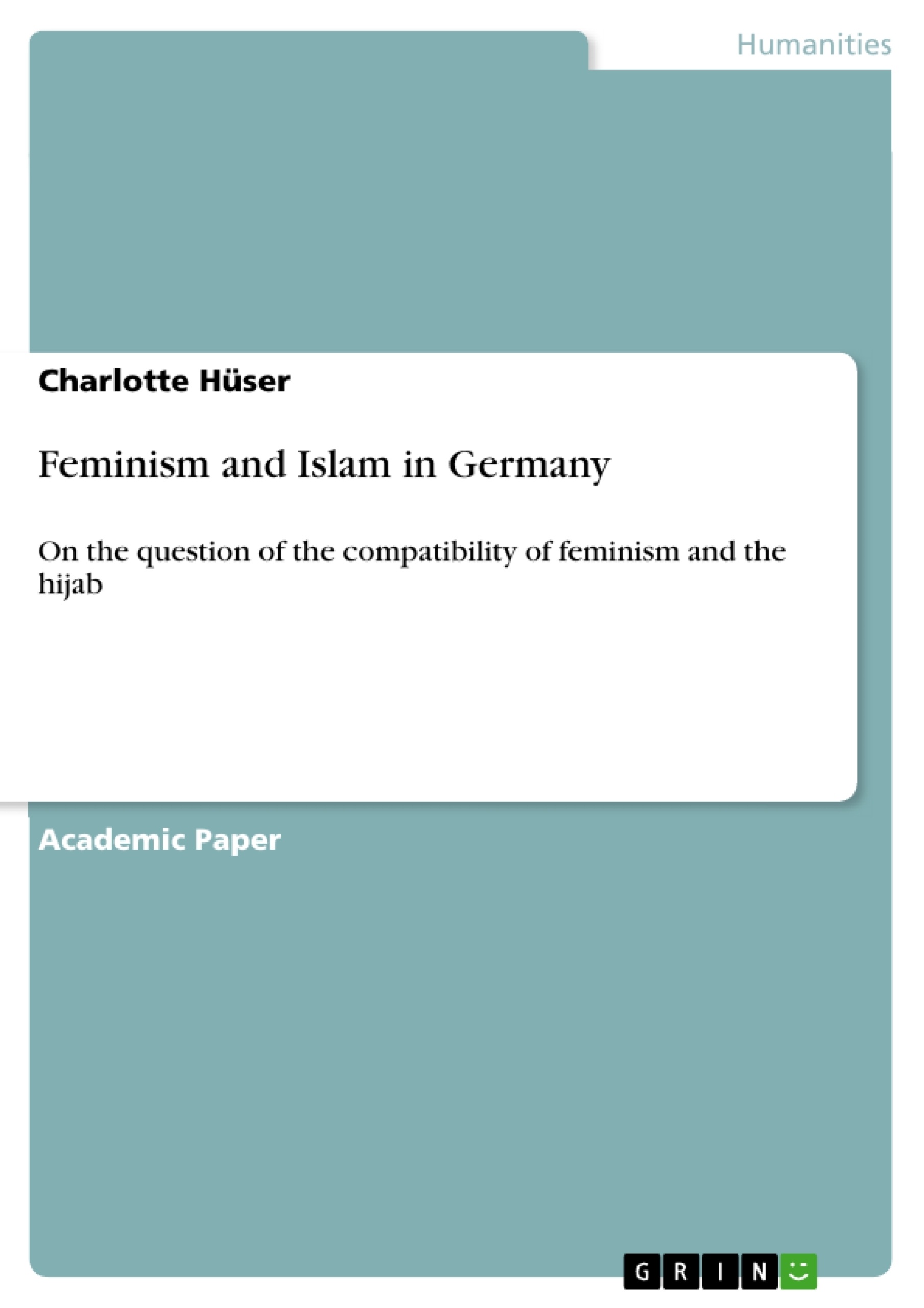Feminists in the Western world have fought for a longtime against the constraints of (the Christian) religion. With the growth of the Muslim population and the increasing presence of women wearing Islamic headscarves, much is being discussed about the compatibility of feminism and Islam. The reasons and individual and social meaning of the hijab and its origins in the Koran need to be analyzed, to contribute to this discussion.
With the growth of the Muslim population in Germany, the debate on the question of the compatibility of feminism and Islam has received a significant boost. There are now a lot of Muslim women who publicly comment on this issue, presenting themselves as feminists and choosing to wear an Islamic headscarf, the so-called hijab. Especially this discussion, about the religious clothing of the Muslim woman is interesting. Especially the rights of women to self-determination and freedom of religion are here in the focus of the debate. For some, the headscarf is a symbol of male oppression, for others it is a symbol of their - not just religious - freedom. The purpose of this text is to try to answer the question of whether wearing a headscarf on a religious basis is compatible with feminism, as it is understood in Germany. The relevant arguments of the discussion should be reproduced.
Inhaltsverzeichnis (Table of Contents)
- Zusammenfassung
- Feminismus und Islam in Deutschland
- Feminismus als soziale Bewegung
- Die “Wellen” der Frauenbewegung
- Islamischer Feminismus
- Der Hijab
- Die Rolle des Hijab in der feministischen Debatte
- Schlussfolgerung
Zielsetzung und Themenschwerpunkte (Objectives and Key Themes)
This essay aims to explore the compatibility of feminism and Islam in Germany, focusing on the question of whether wearing an Islamic headscarf (hijab) aligns with feminist principles. The essay analyzes the arguments surrounding the hijab, its origins, and its significance in the context of women’s rights and self-determination.
- The evolution and history of the feminist movement
- The concept of Islamic feminism and its emergence
- The different perspectives on the hijab and its meaning
- The role of religion and tradition in shaping individual choices
- The intersection of gender, religion, and cultural identity in modern Germany
Zusammenfassung der Kapitel (Chapter Summaries)
- The essay begins by outlining the growing debate on the compatibility of feminism and Islam in Germany, particularly concerning the hijab.
- It then delves into the historical development of feminism, highlighting the key stages of the women’s movement and its achievements in securing women’s rights.
- The essay proceeds to explore the concept of Islamic feminism, emphasizing the differences between Muslim and Islamic feminists and the significance of a gender-equitable interpretation of the Quran.
- The essay analyzes the motivations behind wearing the hijab, exploring various interpretations of the Quranic verses regarding female dress and the potential for both oppression and self-expression.
- The essay examines the debate on the hijab in feminist circles, highlighting the contrasting views and concerns surrounding the voluntary choice to wear the headscarf.
Schlüsselwörter (Keywords)
This essay explores key concepts related to feminism, Islam, and the hijab. It examines the intersection of gender, religion, and culture in the context of modern Germany. Central themes include women's rights, self-determination, religious interpretation, cultural identity, and the debate surrounding the hijab as a symbol of both oppression and empowerment. Key concepts also include the historical evolution of the feminist movement, the emergence of Islamic feminism, and the diverse motivations for wearing the hijab.
- Arbeit zitieren
- Charlotte Hüser (Autor:in), 2018, Feminism and Islam in Germany, München, GRIN Verlag, https://www.grin.com/document/510256



